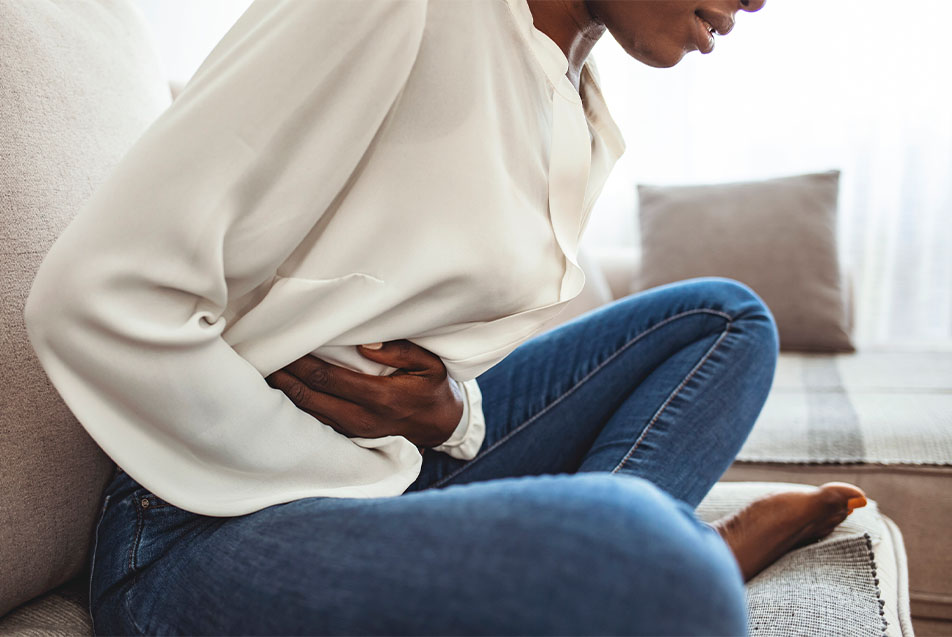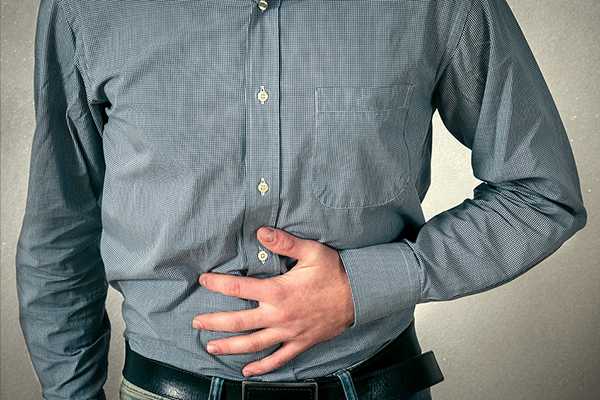
While gallbladder issues are relatively common, they can be extremely painful and hinder daily activities. For this reason, your provider may recommend gallbladder surgery. Kaitlyn Hinman, MSN, FNP-C, PPG – General Surgery, helps answer our questions regarding the procedure while sharing which scenarios would warrant gallbladder removal and what patients can expect post-operatively.
What is gallbladder surgery?
Gallbladder surgery, or cholecystectomy, is a minimally invasive surgical procedure to remove the gallbladder. Typically, it’s done laparoscopically by way of small puncture sites on the abdomen. However, if the surgeon cannot remove the gallbladder through this method, there may be a need for an open surgery where they utilize a larger incision to remove the organ properly.
Why would someone need this surgery?
Many people think they need to get their gallbladder out because they have gallstones, but that’s not always the case. The only time we would remove the gallbladder due to gallstones is if someone had symptoms associated with it. For example, in one scenario, if someone has gallstones that are visible on imaging and has upper right quadrant pain, nausea, bloating and is unable to eat fatty foods, we would look at removing their gallbladder.
Another scenario might be if someone with gallbladder sludge is experiencing any symptoms plus biliary dyskinesia. This disorder arises when the gallbladder stops doing its job releasing bile into the small intestines to break down high-fat foods. When this occurs, people often experience pain, nausea, vomiting and other symptoms shortly after eating fatty foods.
Who’s most at risk for gallbladder issues?
While gallbladder issues can happen to anyone, women seem to be at a higher risk, especially those who are overweight, in their 40s and/or have recently had a baby. Additionally, people who consume a high-fat (good and bad fat), high-cholesterol, low-fiber diet are also at an increased risk.
Who is not an ideal candidate for gallbladder surgery?
Believe it or not, some people should not have gallbladder surgery. For example, if a patient’s blood work shows elevated liver or pancreatic enzymes, we will not proceed with the procedure. There could be an issue with a lodged gallstone in the hepatic biliary duct system, which means they wouldn’t tolerate surgery well. So, the pancreas and liver would need to settle down before proceeding with the surgery.
What are some of the benefits of gallbladder surgery?
The main benefit and advantage of gallbladder surgery is simply the relief from symptoms. Taking away that upper abdominal pain, bloating, nausea and, sometimes, acid reflux can make a world of difference for patients.
What are some of the challenges of gallbladder surgery?
One of the biggest challenges we see with gallbladder surgery is that patients are hesitant to go through with it because they don’t want to take time off. Typically, patients need to be off work for at least two weeks following surgery unless they have a desk job that doesn’t require them to lift anything over five pounds or strain themselves in any way. Patients must also be completely off all pain medication and feel comfortable and capable of driving before heading back to their job.
Patients may also experience some digestive distress and dietary challenges after the procedure. Without the gallbladder, your body must figure out a new way of digesting fats. Eventually, the liver will adjust and begin to make more bile as time goes on. But should a patient develop diarrhea following surgery, we recommend adhering to a low-fat, high-fiber diet. Then, over time, slowly begin re-introducing those foods back in to see how the body reacts.
Tip: When patients hear “low-fat diet,” they automatically think of unhealthy fatty foods like hamburgers, tacos or fried chicken, but this pertains to healthful foods with good fats, too. For example, while avocados and nuts are whole foods with good fats, they can still affect people adversely following surgery.
What can a patient expect after the procedure?
A patient may experience abdominal pain and post-operative discomfort at the incision sites. In most cases, patients can easily manage their pain with oral medications or pain relievers like acetaminophen or ibuprofen. Patients may also have sutures or staples, along with dressings, over the incision sites. These will most likely come off at their follow-up appointment about two weeks later.
Can someone live a normal life after having their gallbladder removed?
Absolutely! Patients can live a healthy normal life following gallbladder surgery, but it may take a little time before their body starts to like fatty foods again. Remember to be patient, take it slow and listen to your body.



